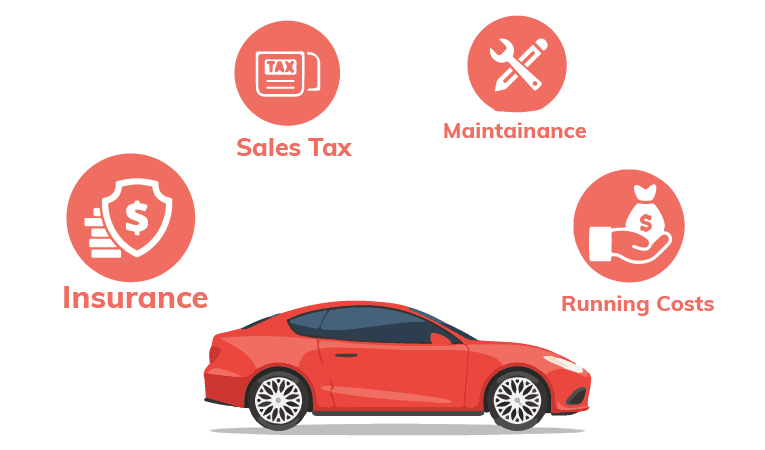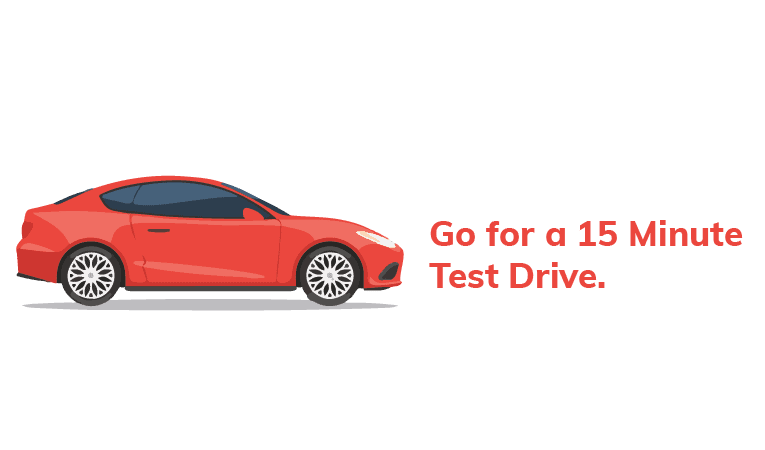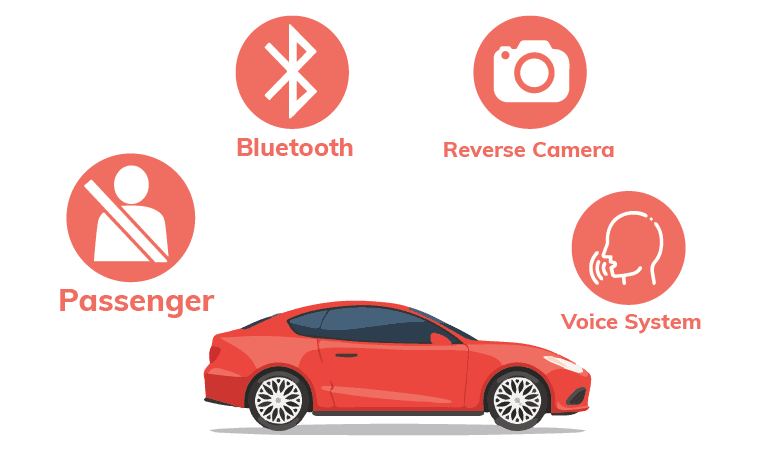If you're searching for a straightforward, hassle-free guide to buying a car in Canada, your life just got a lot easier.
There are many things to consider when buying a new or used vehicle. These include setting a budget, comparing insurance providers, evaluating car options, and knowing what a great deal looks like. Then, if you're planning on financing, you need to make sure it's done correctly, as it will be a long term commitment for you.
It can be mind-boggling sometimes when you think about it all. Plus, there's a lot of contradicting information floating around on the internet about this topic.
Instead of searching far and wide, stick with us, and we'll walk you through each step of the way. By the end of this blog post, you should be confident and in the know about getting your next vehicle — without the headaches.
Disclaimer:
All, or some of the products featured on this page are from our affiliated partners who may compensate us for actions and or sales completed as a result of the user navigating the links or images within the content. How we present the information may be influenced by that, but it in no way impacts the quality and accuracy of the research we have conducted at the time we published the article. Users may choose to visit the actual company website for more information.
Set Your Budget and Check Insurance Rates
First and foremost, you need to set a realistic budget that you can genuinely work with when evaluating all your options.
You have to remember that it's not only the cost of the car you're dealing with but also:
- Insurance: There are many variables to how premiums are calculated.
- Running costs: Better mileage means lower long term fueling costs.
- Maintenance: Newer cars require much less maintenance.
- Sales tax: Often excluded from the initial price dealerships display to entice you.
You need to factor all of the things above into your decision making process and final budget.
So to budget correctly, first think about all your needs and wants in a car. Write these down for clarity. Obviously, keep these requirements realistic and try to order them into levels of importance.
Your needs or wants could include trunk space, mileage, safety standards, size, aesthetics, acceleration, and even the average resale value. There's plenty to consider and loads of new and exciting technology to check out as well!
Take into consideration that some brands do sell better as used cars than others. So if you're savvy enough, you could buy a car with the features you want from a brand that typically has higher resale value. Ten years down the line, it might hold its value much better than a similar car from another brand.
One crucial consideration when budgeting is knowing which factors influence your insurance rates. Certain car types will fall into a higher category of insurance payments, like sports cars. But with some more practical low fuel consuming options, premiums will be lower. Other factors include whether a car is new or used, your driving experience and demographics, as well the coverages and deductibles you choose. Don't forget to compare quotes from different insurance providers, get a quote today!
Buying a Car: What Are My Options?
Once your budget is firmly set in place, it's time to look at the three main options you now have for buying a car.
Knowing where to find your next car couldn't be easier these days with the internet. You can easily compare what's available in your area and check out prices online before visiting dealerships.
Alternatively, you might prefer going down to local car auctions or checking the classifieds in newspapers for a hidden gem. Really, it's all about what you feel comfortable with the most.
But it's important to establish whether you want a new or a used car. New cars are a lot pricier, but they come with better technology, safety features, and efficient fuel consumption; but, they lose a lot of value straight after purchase.
The real draw with used cars is that they are cheaper, and you might get a lot of bang for your buck in terms of features and performance. The downsides are that they may require more maintenance, and not have all the newest features you may want.
You may finance both a used or new car, although many people prefer buying a used vehicle outright because if its lower price.
Leasing is another option to consider. You basically agree to fixed payments for a period of time, and you get full access to your chosen car to use in that timeframe. Car leasing is usually for a period of 2-4 years.
The great thing about this is you can lease cars you might not usually be able to afford. The problem is you paying out a lot of money that you won't get back from reselling because you don't own the car.
Paying in cash and buying your car outright is a straightforward transaction, but it's best to set a definite limit in your budget. It can be easy in the heat of the moment to commit pen to paper on a car you really love and then regret overspending later.
Yet buying in this way has to be one of the safest ways financially, as you'll own the car outright with no future payments. You also might get a better deal because dealerships prefer cash upfront.
For car financing options, you should also strictly stick to your budget. Ensure that, before committing to any contracts, the fees and payments are clearly laid out for you to see and keep for future reference.
To get better financing options, you need a good credit score. Some dealerships will offer certified used vehicles with a favorable interest rate to finance your car.
Also, keep in mind that having a larger down payment can significantly reduce monthly payments.
An effortless and reliable way of getting pre-approved for a car loan is to go with Car Loans Canada. They take all the frustration and anxiety out of the process and honestly talk to you about your options.
Get Pre-Approved for a Loan with Car Loans Canada
A car buying journey you can trust.
Get startedGo for a Test Drive
It's important to test drive your chosen vehicle to get a feel for it and find out if it suits your driving style. Is there a proper way to go about the process? The test drive process is more than just getting a feel of the car. This is your chance to get a feel of the car, inspect the vehicle properly and sense out any potential issues.
Test Drive Tips
First off, before even getting into the car, make sure it's insured. This is mostly applicable when you are test driving used cars. The last thing you want is to crash the car without insurance covering your back.
You should only be test driving cars that you are genuinely considering buying. You might think that testing a similar model will give you some clues about the other model you actually want to buy, but it's often not the case. Different models tend to have whole different systems installed like different powertrains, different tires, engine variations, and many other variables. Plus, don't drive the model that uses gas and then go for the diesel version of the same car thinking they'll be the same.
The third tip is always to try to drive on roads you know. This way, you're going to feel a lot more confident and know what to expect. Then you can focus on what's good or bad about the car without attributing it to the roads.
Make a shortlist of vehicles you are considering, these are the ones you need to test drive, and we recommend narrowing your shortlist down to three or four top contenders.
How Long Should You Carry out a Test Drive?
Any less time than 15 minutes will severely limit your ability to judge the comfort levels of the car. Besides, you also need time to get used to all the toys and gadgets inside the vehicle, and less than 15 minutes just isn't going to cut it.
Another thing you need to think about is the "life logistics" of your car. What we mean is, will it accommodate all your daily lifestyle needs? It could be the smallest of issues that reveal themselves after purchase, and they'll bug you for years because you can't change them.
A good example is a car might not fit comfortably into the area where you intend to keep it. Or maybe you're a golfer, and your bag won't fit into the trunk properly. These little annoyances can go a long way over the years to even making you regret your choice of car.
Other quick tips include:
- Check out the Bluetooth
- Reverse park to test the camera
- Test the voice recognition system
- Ride as a passenger
Doing all this will ensure you choose the best car for your lifestyle and needs!
What Is the Best Time to Buy a Car?
Many people wonder if there is a better time of the month, or even year, to buy a car. The answer is yes: at the end of any given cycle.
What does that mean?
The end of the month, the end of the year, the end of a quarter, as well as car life or design cycles. You can expect that dealers want to offload cars at the end of any of these cycles to meet sales targets.
You're much more likely to get a better deal when the sales guys are getting desperate and need to meet their targets.
Plus, if you're confident enough, the end periods are a great time to ask for extras thrown in. It all depends on how good you feel about negotiating with the person selling you the car.
If you don't think it's the right deal, you should take a break and call off the negotiations to give yourself a chance to collect your thoughts. It could be a few minutes, an hour, a day, or a week even — whatever it takes!
Complete Your Purchase
To complete your purchase, carefully review the contract with you dealership. Or, if you're buying from a private owner, then you need to make sure all their paperwork is in order.
In dealerships, they'll try to sell you a whole bunch of unnecessary add-ons, that you can get cheaper elsewhere. You can skip on those.
Also, if you're financing, make sure to look through all the contract details, as some places will try to do what has been deemed yo-yo financing scams. These scams are where the dealership will sell you a car before your loan gets approved, likely causing the negotiated interest to increase.
Your Guide to Buying a Car in Canada: Final Thoughts
In summary, you should be comparing prices, considering between financing, secured loans, or straight up payment, checking insurance rates, and making sure you test your new car before buying it.
If you're looking for insurance, we got you covered. Contact us today to get a quote for your insurance needs.






